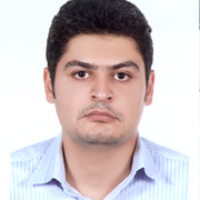River Pollution Discharge Management Using Particle Swarm Optimization Algorithm, Case Study: Gheshlagh River
Pollution of surface water especially rivers has created serious problems for both human health and environment. Finding efficient solutions for controlling river pollution is essential in order to reduce damage for the consumer to protect the environment. In this research, river quality management planning is determined in a way that minimized the rate of pollution damage with using particle swarm optimization. The case study is Gheshlagh River in Iran, Kurdistan province. The timetable for entering contamination is at different hours of the day, and eight source points enter contamination to the Gheshlagh River. Also in all hours of the day, water harvesting from the Gheshlagh River is carried out by the downstream consumers. The 192 of decision variables of this research are corresponding to the amount of contamination entering from these sources at different times. Also, 8 decision variables are corresponding to the optimal location of contamination entering to the river. The results indicate that in the optimal condition the value of contamination does not exceed from the allowable limited. However in the unmanaged condition, the contamination value exceeds the allowable limit. The river quality management planning which determines the optimal location and the timetable of pollution discharge, reduced significantly consumer's damages. So that the objective function of this study was reduced by 97.7%.
-
Two-dimensional modeling of groundwater flow using a Meshless Local Petrov-Galerkin method based on RBF radial function (Case study: Rafsanjan plain)
Samira Zeinaddini Meimand, Bahareh Pirzadeh *, Seyed Arman Hashemi Monfared, Rasoul Memarzadeh
Iranian Journal of Irrigation & Drainage, -
An Evaluation and Critique of Research on the Issues Facing the Kashafrud River, Along with Proposing a Comprehensive Solution
Rezvan Salajegheh, Saeed Reza Khodshenas, Seyed Arman Hashemi Monfared, Kazem Esmaili *, Fereshteh Modaresi
Journal of Water and Sustainable Development,


